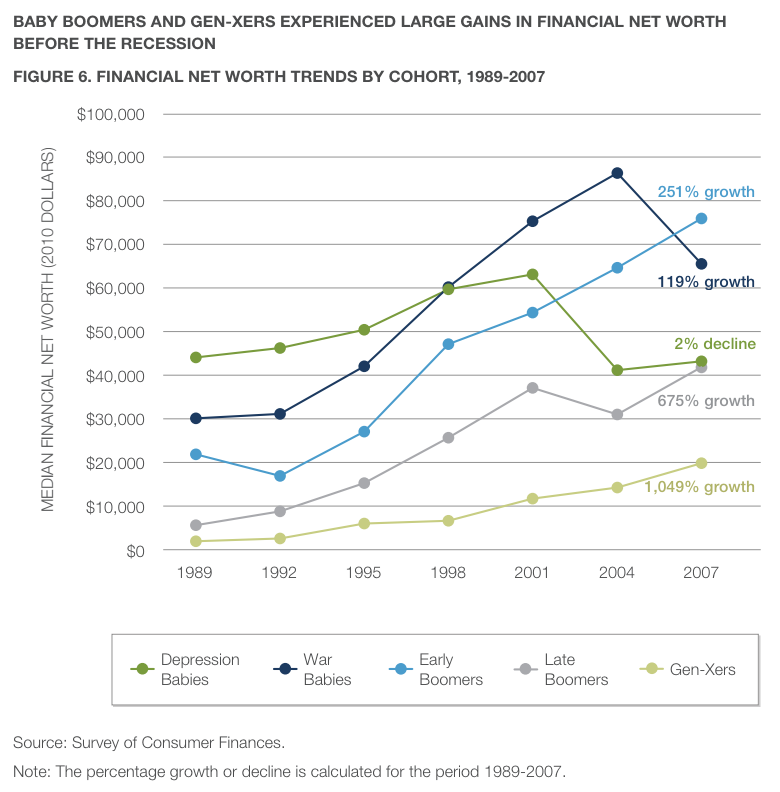Gen Y A Lost Generation of Investors
Post on: 6 Июнь, 2015 No Comment

NEW YORK (MainStreet ) — Investors under the age of 34 have time on their side, with decades of potential market appreciation to ahead, yet 40% of Millennials define long-term investing as less than five years. One quarter say their primary goal is protecting principal and as a result they hold more cash in their portfolios than their grandparents.
The data confirm that we have a lost generation of investors, said William Finnegan, senior managing director and head of Global Retail Marketing for MFS, sponsor of the research. The impact of 2008’s Great Recession has had a deep-seated secular impact on Millennial investors. Their grandparents are more aggressive investors. The textbook says, given their time horizon, that Millennials will be all right once the economy improves, but reality shows these ‘recession babies’ don’t trust the markets and have embraced a conservative approach that could prevent them from reaching their long-term financial goals.
Fully 30% of Gen Y considers themselves short-term investors, holding a 25.8% stake in cash and just 30.5% in equities. The defensive nature of these young investors is only solidifying. Nearly half (46%) admit they would never be comfortable investing in the market, up from 40% in a June 2011 survey.

When considering all age groups of investors, the survey found most own a mix of passive (index) and active investments, without revealing a strong preference for one type over the other. Nearly two-thirds of investors who owned passive investments also owned active investments, and 20% planned to increase their allocation to actively managed mutual funds in the next 12 months.
The survey also revealed a surprising level of misunderstanding regarding index investments. Nearly half (48%) said a major factor for owning them was minimal risk.
In the minds of most investors, it’s not active or passive, but active and passive, said Finnegan. However, the survey clearly revealed a lack of understanding about the key characteristics of these two investment approaches. Whether it’s passive or active, we are concerned investors don’t understand what they own and the investment risks associated with these strategies. Given the impact of the last recession on investors, the risk of not knowing why they own something could dramatically impact investors’ financial futures and their ability to meet their long-term goals.














